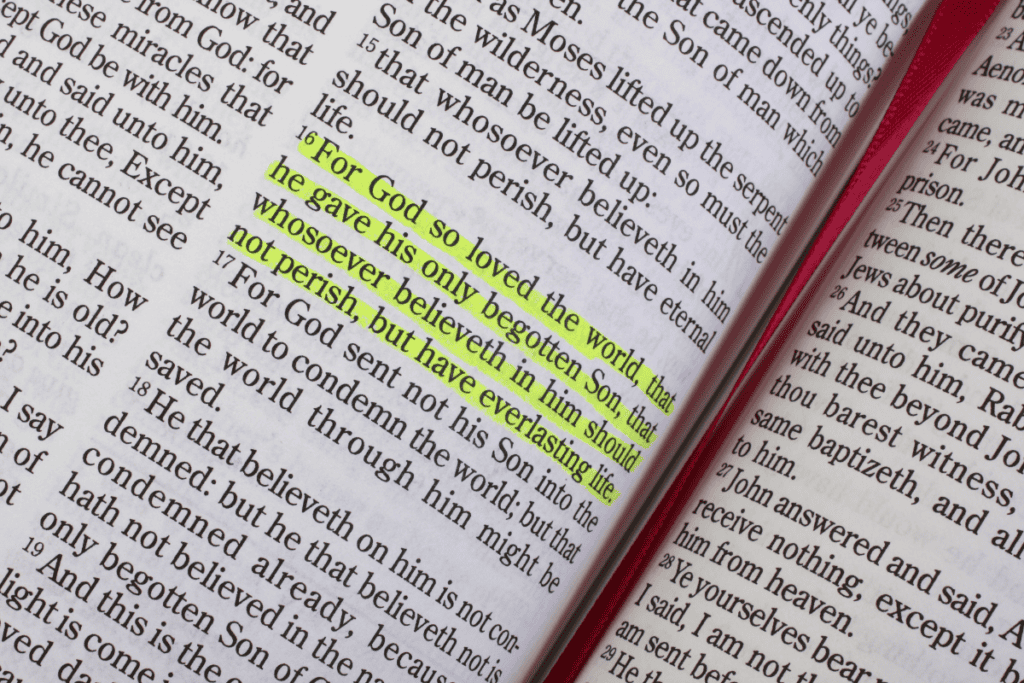I remember when I first started reading the Bible, I wasn’t sure what to expect. The stories felt distant, and the language was sometimes hard to understand. But over time, as I committed myself to spending more time in Scripture, I started to see something remarkable: God’s character, His love, and His plans became clearer. It was no longer just words on a page but a living connection with God Himself.
Reading the Bible is one of the most powerful ways to learn more about who God is. Scripture is God’s direct revelation to humanity, offering insight into His heart, His desires for us, and His promises. The Bible teaches us about His attributes, character, and works, allowing us to understand His nature more deeply.
But this is just the beginning—God’s Word offers even deeper wisdom on this issue that can transform your relationship with Him.
The Bible Reveals God’s Character

The first way the Bible helps us learn more about God is by revealing His character. From Genesis to Revelation, Scripture paints a portrait of a God who is loving, just, holy, and merciful. Each page reveals a little more about who God is and how He interacts with humanity.
For example, in Exodus 34:6-7 (NLT), God describes Himself to Moses: “The Lord passed in front of Moses, calling out, ‘Yahweh! The Lord! The God of compassion and mercy! I am slow to anger and filled with unfailing love and faithfulness. I lavish unfailing love to a thousand generations. I forgive iniquity, rebellion, and sin.'” Here, we see God declaring His nature as compassionate, merciful, and faithful.
As we read the Bible, we also encounter stories where these characteristics come to life. Consider the parable of the prodigal son in Luke 15. This story illustrates God’s immense love and forgiveness. Even though the son had rebelled, his father welcomed him home with open arms. This teaches us that God is not just a distant ruler but a loving Father who is always ready to receive us.
The more you study these stories and passages, the more you’ll see the consistency of God’s character. He is the same yesterday, today, and forever (Hebrews 13:8, NLT), and His Word reminds us of that every time we open it.
Scripture Shows Us God’s Will for Our Lives

Another way the Bible helps us learn about God is by revealing His will for our lives. As we grow in our knowledge of Him, we also learn what He desires for us, both in our personal walk and in our relationships with others.
For instance, in Micah 6:8 (NLT), the prophet shares a simple yet profound message about God’s desires: “O people, the Lord has told you what is good, and this is what he requires of you: to do what is right, to love mercy, and to walk humbly with your God.” This verse teaches us that God’s will is for us to live in a way that reflects His own love, justice, and humility.
Through Scripture, we also learn how to align our lives with God’s plans. Jeremiah 29:11 (NLT) says, “For I know the plans I have for you,” says the Lord. “They are plans for good and not for disaster, to give you a future and a hope.” This verse reassures us that God’s will is always good and that His guidance leads us to a life of purpose and hope.
A practical step to discovering God’s will through the Bible is to meditate on His Word daily. Set aside time to study specific passages that address areas where you seek guidance—whether it’s relationships, work, or personal struggles. As you read, pray for God’s wisdom and direction. Over time, you’ll begin to see how His plans unfold in your life.
The Bible Connects Us with God’s Story of Redemption

At its core, the Bible is a story of God’s redemptive plan for humanity. From the fall of Adam and Eve in Genesis to the promise of eternal life in Revelation, Scripture tells the story of God’s love and His desire to restore a broken relationship with His creation.
This redemptive narrative reveals so much about God’s heart. In John 3:16 (NLT), we find one of the most well-known verses that captures the essence of this plan: “For this is how God loved the world: He gave his one and only Son, so that everyone who believes in him will not perish but have eternal life.” Through Jesus’ sacrifice, we see a God who is willing to go to incredible lengths to bring us back into fellowship with Him.
As you read through the Bible, pay attention to how this story unfolds. From the promises made to Abraham to the fulfillment of those promises in Christ, every book points toward God’s ultimate plan of salvation. This overarching theme shows us that God is not only a Creator but also a Redeemer—a God who loves us so much that He willingly entered into our world to save us.
Understanding this redemptive plan helps us see God’s purpose not just for the world, but for our own lives. It reminds us that no matter where we are or what we’ve done, God’s love and grace are always available to us.
Practical Steps for Studying the Bible to Learn About God

Now that we’ve explored how the Bible reveals God’s character, will, and redemptive plan, it’s important to consider how we can practically engage with Scripture in a way that deepens our understanding of God. Here are some steps you can take to make your Bible reading more impactful:
- Start with Prayer: Before you begin reading, ask God to reveal Himself through His Word. James 1:5 (NLT) encourages us to ask for wisdom: “If you need wisdom, ask our generous God, and he will give it to you.”
- Read Consistently: Set aside time each day to read the Bible, when you’re commuting to work for example. Even if it’s just a few verses, consistency is key. Over time, you’ll build a habit that will allow God’s Word to take root in your heart.
- Use a Study Guide or Commentary: Sometimes, certain passages can be difficult to understand. Using a study Bible or a trusted commentary can provide valuable insights into the context and meaning of the text.
- Reflect and Apply: After reading, take a few moments to reflect on what you’ve learned about God. Ask yourself how the passage applies to your life and what it reveals about God’s nature.
- Discuss with Others: Join a Bible study group or find a friend to discuss Scripture with. Hearing others’ perspectives can deepen your understanding and help you see things in a new light.
Conclusion: The Lifelong Journey of Knowing God
Reading the Bible is not just an academic exercise; it’s a lifelong journey of discovering who God is. As you commit yourself to Scripture, you’ll grow in your knowledge of His love, His character, and His plans for your life. In my own experience, the more I read, the more I realize that there is always something new to learn about God.
Psalm 119:105 (NLT) beautifully captures this journey: “Your word is a lamp to guide my feet and a light for my path.” As you dive deeper into the Bible, you’ll find that God’s Word truly illuminates your understanding of Him, guiding you closer to His heart each day.

